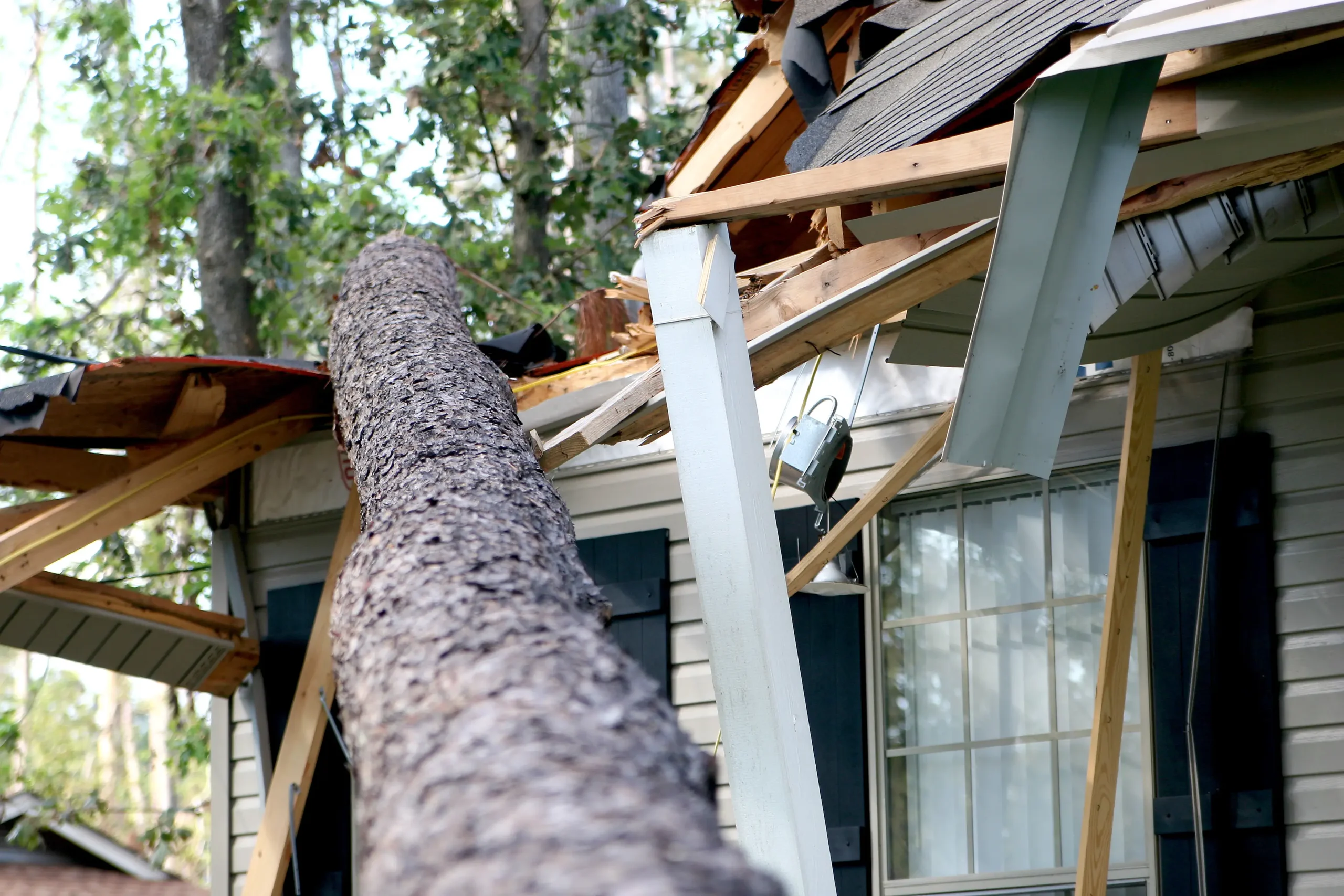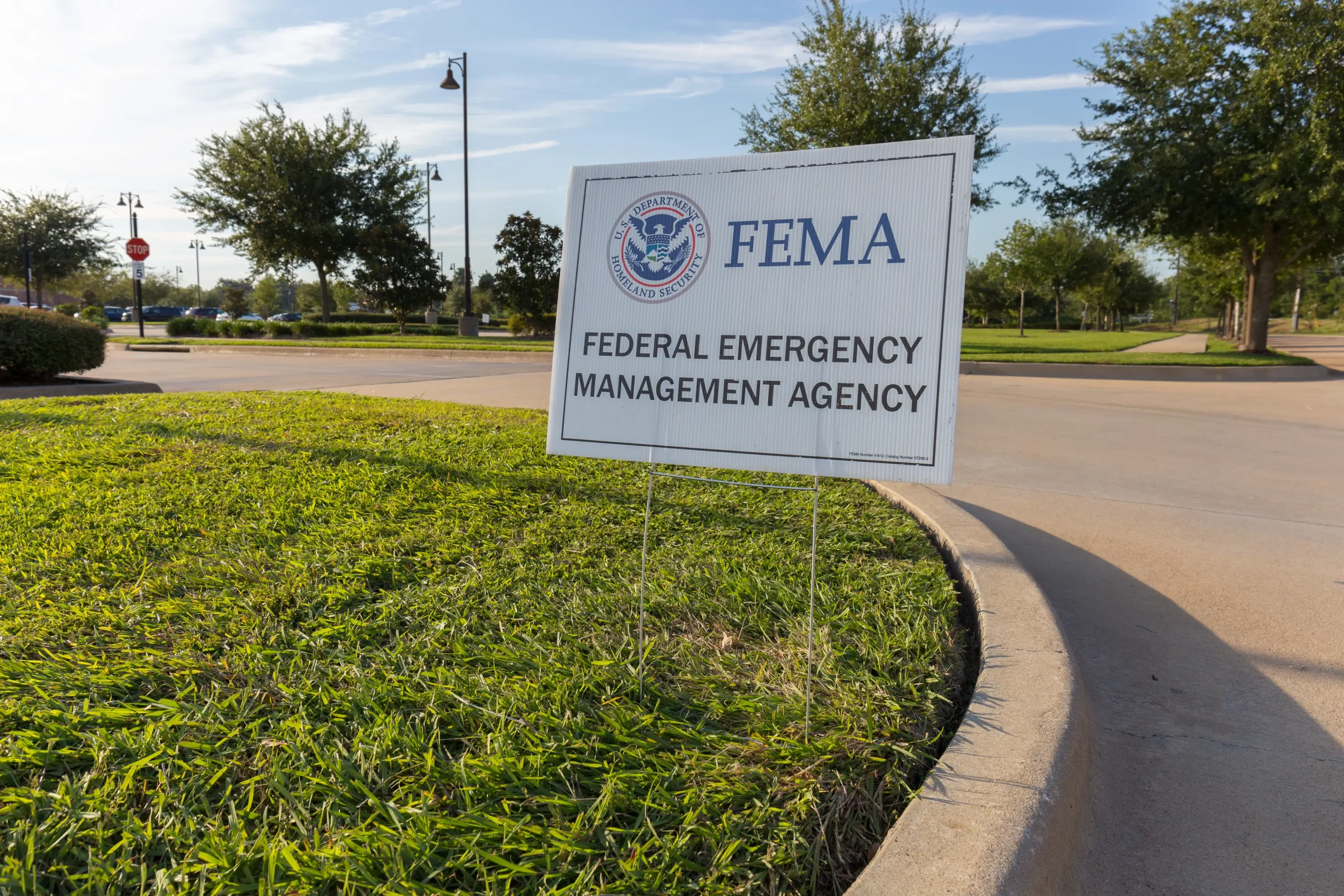Hurricane Helene Damage Lawyer/ Property Damage Claims Lawyer
The aftermath of Hurricane Helene can feel overwhelming— your home, your peace, and your security have all been shaken. At Kennon Law, we know how heartbreaking it is to see everything you’ve worked for damaged by a storm.
Hurricane Helene was one of the most destructive storms in recent memory. It washed out roads, caused long-term power outages, destroyed homes, and caused the deaths of numerous people.
If you’re one of the thousands of homeowners dealing with damaged property as a result of the hurricane, you might be apprehensive about filing a claim with your insurance company. Alternatively, maybe you’ve already filed a claim and have been denied. In either case, a hurricane claim attorney may be able to help you navigate the claims process and maximize your chances of having your claim paid out successfully.
At Kennon Law Group, we’re dedicated to helping Florida homeowners get the compensation they deserve after catastrophic hurricane damage and losses from other natural disasters. Call us today for a free consultation.
How Can a Hurricane Damage Lawyer Help You?
Many policyholders choose to simply deal with the insurance company themselves. There’s technically nothing wrong with doing this, but if you want to make sure you receive all the compensation you’re entitled to, working with a hurricane claims lawyer is essential. Here’s a look at how your attorney can help you throughout the process.
Helping You Understand Your Policy
Before you file any kind of insurance claim, you should make sure you have a thorough understanding of what your policy covers. If you’re like many people, though, you may have found that understanding your policy can be a challenge. A lawyer can help you understand what is covered and what kind of compensation you can reasonably expect before you file a claim.
Putting Together Your Claim
You don’t have to wait for your claim to be denied to enlist the help of a hurricane property damage lawyer. When you have an experienced lawyer helping you gather documentation of losses and other evidence you need, you might be more likely to receive fair compensation without having to file an appeal.
Filing Appeals if Your Claim Is Denied
Unfortunately, home insurance companies often reject or underpay claims. If this happens to you, you will need to file an appeal. If the insurance company has already denied your claim, they will likely scrutinize your appeal very closely.
Hurricane property damage claim lawyers know how to structure appeals to maximize your chances of approval the second time around.
Representing You in Bad Faith Lawsuits
Some insurance companies may continue to deny or underpay legitimate claims. If your lawyer believes your appeal has merit, they may be able to represent you in a bad faith lawsuit against the insurer.
This kind of lawsuit happens when you could reasonably argue the insurer’s denial of your claim was in bad faith, meaning the insurer has declined to cover something they were contractually obligated to cover.
The decision to file one of these lawsuits is a complex one, but your attorney can review your claim history and help you decide whether it’s a good idea to take legal action.
Hurricane Helene Insurance Claim Process
Before you start the process of filing your insurance claim, it can be helpful to understand the basics of how the claims process works. Generally, you’ll want to follow these steps:
- Only return to your home when it’s safe to do so
- Review your policy to make sure you know what’s covered
- Thoroughly document damage
- Do what you can to prevent further damage
- Contact your insurance company to start the claim
- Meet with the insurance company’s adjuster
- Wait for the insurance company’s settlement offer or denial
- If your claim is denied, file an appeal
It’s wise to work with an experienced hurricane damage attorney throughout the process. Your legal team can offer you guidance along the way and improve your chances of receiving all the compensation you’re entitled to.

Types of Property Often Insured for Hurricane Damage
Many people filing hurricane property damage claims are doing so for their homes. However, there are other kinds of properties that may be insured against hurricane damage. Businesses, including farms, will usually have some kind of hurricane damage coverage. If you have insured the contents of your home, your personal belongings may be protected, too.
Cars can also be insured against hurricane damage. While there isn’t a particular car insurance policy just for hurricanes, comprehensive coverage — which protects you from flooding, fallen trees, and other damages — should cover your car if it’s damaged in a hurricane.
Common Types of Property Damage Claims
If you witnessed the destruction of Hurricane Helene firsthand, you probably know that there are countless kinds of property damage claims homeowners might need to submit after the tragedy. Some of the most common types of property damage claims for such situations include:
- Roof damage
- Damage from fallen trees
- Broken windows
- Damage from flying debris
- Water damage from flooding
- Water damage from burst pipes
- Damaged barns, sheds, and fences
- Damage to HVAC systems and other appliances
- Damage to personal property within the home
Before you file your claim, make sure you have accounted for all damage to your home and other property. A lawyer can help you make sure any relevant losses are included in your claim.

What to do If Your Property Has Been Damaged by a Hurricane Helene
It’s easy to panic if your home or other property has been damaged by the hurricane. However, when you take the right steps, you can be well on your way to having your home repaired. Once it is safe to return to your property, take pictures of all damage. Make sure you do this before you attempt to clean anything up.
You should not make major repairs without insurance authorization. However, it is important to take steps to prevent further damage. A common example is covering a hole in the roof with a waterproof tarp to prevent further water damage. If your insurer determines that some of the damage happened after the hurricane, they may not pay your full claim amount.
Once you have documented the damage, contact your insurer to start the claims process. Make sure not to dispose of any damaged property until the adjuster has seen it.
Insurance and FEMA Assistance
The Federal Emergency Management Agency (FEMA) offers many kinds of assistance for people impacted by Hurricane Helene, including funds for:
- Taking care of immediate needs like food, water, and baby formula
- Replacing lost clothing
- Replacing tools you need to work
- Covering the cost of necessary medical care or lost medical equipment
- Repairing or rebuilding your home
Financial assistance for finding temporary housing may also be available.
You may be eligible for some assistance services even if you have insurance coverage. However, FEMA usually only offers assistance with repair and rebuilding if you have been denied coverage by your insurance company.

Recommendations for Dealing With Your Insurance Company
If you have never had to file a home insurance claim, you might mistakenly think that filing a property damage claim after a hurricane is quick and easy. Unfortunately, insurance companies are notorious for doing all they can to avoid paying you what your claim is worth. When you keep these tips in mind, though, you’ll have a much greater likelihood of a successful claim.
1. Document Your Loss
You likely already know that insurance companies can’t just take your word from it when it comes to what you’ve lost in the hurricane. The more documentation you have for your losses, the more likely you are to receive a fair settlement. Here are some suggestions for accurate loss documentation:
- Take as many photos of any damage as you can
- Include both close-ups and photos that show the full scope of damage
- When possible, have receipts to prove the value of damaged items
- Don’t clean up or dispose of damaged items before an adjuster arrives
- Try to locate pictures of what your property looked like before the damage
Thorough loss documentation is one of the biggest differences between successful and unsuccessful claims. Make sure you take your time with this step.
2. Cooperate With Your Insurance Company as Much as Possible
Dealing with insurance companies can be frustrating. But the more you’re able to cooperate with your insurer, the greater your likelihood of a successful claim. Always respond promptly to communications from your insurer, and do your best to accommodate visiting adjusters.
Cooperating with your insurer does not mean you should let them take advantage of you, however. You should always document communications with the insurer and ask any clarifying questions you need to.
3. Answer Any Questions the Insurance Company May Have Related to Their Investigation
Insurance companies will likely need to ask many questions as they investigate your claim. Always answer honestly and thoroughly, but don’t speculate. You also should avoid saying anything the insurer might interpret as an admission of fault.
For example, don’t say something like, “Maybe I should have put a tarp over the roof before the storm came.” Statements like this one may lead the insurer to determine that you failed to protect your property — and that you, therefore, should not receive a payout.
4. Do Your Evaluation of the Amount of Your Claim
Before you accept any offer from your insurer, do your own research to determine whether their settlement offer is reasonable. Call around to local contractors, and get estimates for how much repairs would cost.
Add those costs to the value of any destroyed property covered under your policy, and then compare the number you get to the value of the insurer’s proposed settlements. For example, if a contractor estimates repairs will cost $50,000 and you’ve lost $5,000 of furniture, it will probably be necessary to negotiate if your insurer proposes a settlement of only $30,000.
5. You Are Not Required to Sign a Release of Your Claim With Your Insurance Company
Your insurance company may pressure you to sign a release. This means that you are completely satisfied with their offer and that you are waiving your right to pursue any further compensation. Don’t cave into pressure from the insurer. You should always discuss an offer with a Hurricane Helene attorney before you consider signing any kind of release.
6. Ignore Insurance Company Legal Advice or Representations That You Do Not Need a Lawyer
Countless people sadly have their claims underpaid each year because they believe the insurance company is on their side. If your insurance company says you don’t need a Hurricane Helene property damage attorney, don’t believe it. Most of the time, insurance companies tell you this because they know an attorney will advise you that you can receive more compensation.
7. Contact a Lawyer if You Believe Your Claim Is Not Being Adjudicated Fairly
Property damage claims attorneys work with insurance providers on an almost daily basis. A skilled attorney can take a quick look at your situation and determine whether your insurance company is handling your claim fairly or not.
It’s often wise to contact a lawyer before you file a claim, but a property damage claims lawyer can step in to help you at any stage of the process.
Contact Kennon Law Group for Trusted Legal Help
The aftermath of a hurricane in Florida can be stressful enough without having to worry about navigating legal and insurance issues. Let a hurricane damage lawyer from our seasoned team handle your claim while you focus on moving forward. Contact us for a free consultation today.
Questions To Ask A Property Damage Claims Lawyer
What Damages Has Hurricane Helene Caused?
Hurricane Helene caused the deaths of at least 230 people across multiple states, and it is estimated to have resulted in more than $30 billion in total damage. While the storm surge along the Florida coast destroyed countless homes, businesses, and roadways, the hurricane also caused deadly flooding in the mountains hundreds of miles inland.
Does your law firm have experience with hurricane claims?
Before choosing a Hurricane Helene property damage lawyer, you should make sure the law firm in question has worked directly with hurricane damage claims. At Kennon Law Group, we have extensive experience helping Florida citizens get the hurricane damage settlements they deserve.
How to File an Insurance Claim for Hurricane Damages?
Before starting the claims process, make sure you understand what your policy will cover. You should also have as much documentation of the damage to your home as possible.
Once you contact the insurer to report the damage, the insurer will usually send out an adjuster to assess your property. They have 90 days from the day you filed your claim to either pay it or deny it.
To increase your likelihood of having your claim paid, it’s a good idea to ask a Hurricane Helene lawyer to help you assemble and file your claim.
Does homeowners insurance cover hurricane damage?
The answer to this question is more complex than many people realize. Most of the time, a homeowner’s insurance policy will cover wind damage, including wind damage caused by hurricanes.
However, in the vast majority of cases, home insurance does not cover flood damage or storm surge damage. If you want your home to be covered in the event of a flood, you will likely need to purchase a separate flood insurance policy.
Does car insurance cover hurricane damage?
Collision coverage and liability coverage won’t cover hurricane damage to your car. However, comprehensive coverage can. Comprehensive coverage protects your car in the event of flooding, fire, hail, a fallen tree, or other kinds of damage. It’s generally the most costly kind of car insurance, but it’s worth getting if you live somewhere where hurricanes are common.
Does homeowners insurance cover hurricane damage in florida?
That depends on your policy. In general, standard homeowner’s insurance won’t pay for water damage caused by flooding. To make sure your home is as protected from hurricanes as possible, you should carry both standard home insurance (to protect against wind damage) and flood insurance (to protect against water damage).
Is hurricane insurance mandatory in florida?
Florida doesn’t mandate hurricane insurance because there is no separate insurance policy intended to protect your home from hurricanes. However, if you have a mortgage, your lender may require you to carry both standard homeowner’s insurance and flood insurance.
Can you purchase flood insurance during hurricane season?
You can, but it’s a good idea to purchase flood insurance well in advance. That’s because most flood insurance policies come with a 30-day waiting period.
How to deal with an insurance adjuster after a hurricane?
After you file a claim, your insurance company will typically send an adjuster out to assess the damage. You should make sure you have a list of damages to your home ready, along with the approximate value of any damaged items.
You should be very thorough and remain friendly and reasonable. There is usually at least some room for negotiation, and if you come across as level-headed and reasonable, your insurer is much more likely to negotiate with you.
